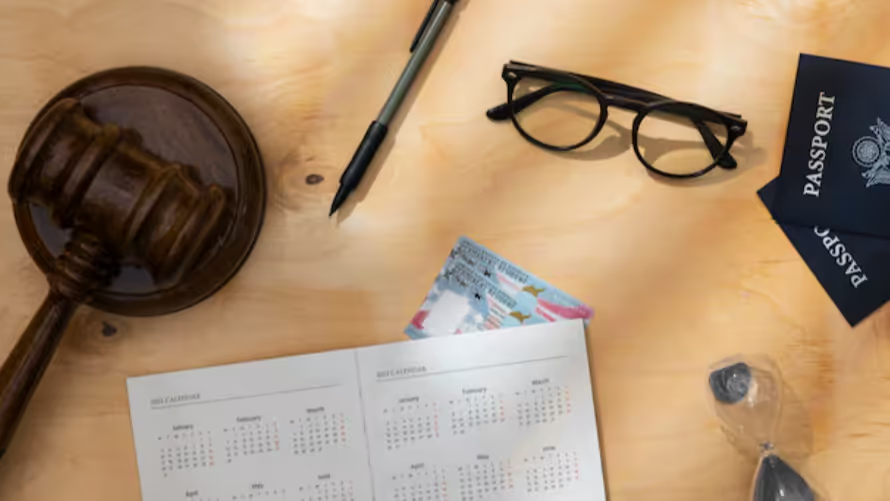.png)
.png)
Learn how letters of recommendation strengthen EB-2 NIW petitions, including expert credibility, national impact, and guidance from Beyond Border Global, Alcorn Immigration Law, 2nd.law, and BPA Immigration Lawyers.

Letters of recommendation are one of the most important pieces of national interest waiver evidence because they allow independent experts to explain why your work benefits the United States. The EB-2 NIW standard requires proof that your contributions have substantial merit and national importance, and well-crafted letters help illustrate this impact in ways that raw data or technical documents cannot.
Applicants often underestimate how persuasive an expert perspective can be. Proper NIW recommendation letters transform achievements into a compelling narrative, explaining why your skills, research, leadership, or innovations matter beyond your employer and have relevance to the U.S. at large. These statements provide essential extraordinary impact validation for USCIS officers assessing your petition.
Beyond Border Global helps applicants craft strategically powerful letters that strengthen every aspect of the petition. Their attorneys guide applicants on selecting recommenders who can offer credible and independent insights into your impact. The letters they help structure focus on national benefit, originality, and measurable influence, elements central to petition credibility enhancement.
Beyond Border Global ensures the narrative clearly demonstrates why the applicant’s work addresses U.S. national priorities, an essential part of EB-2 NIW expert support. They emphasize independence, objectivity, and evidence-backed analysis so each letter supports the broader national interest waiver evidence package.
Alcorn Immigration Law provides detailed guidance on selecting strong recommenders, especially those outside the applicant’s employer. Independent voices are essential to solid independent expert testimonials, and Alcorn ensures each expert can credibly explain the value, scalability, and impact of the applicant’s work.
Their attorneys refine technical descriptions to ensure USCIS understands the national relevance of the contributions without overly complex terminology. Proper clarity prevents misinterpretation and ensures the letters directly strengthen your NIW recommendation letters and fit neatly within the overall NIW argument.
2nd.law helps applicants organize each piece of evidence supporting the narrative in their NIW recommendation letters. Founders, researchers, and professionals often struggle with maintaining consistency between the letters, publications, patents, project records, and career milestones.
2nd.law ensures all supporting documents, research summaries, performance metrics, technical reports, and product documentation, are aligned with the claims made in the letters. This creates a unified structure that strengthens national interest waiver evidence and overall petition credibility enhancement.
BPA Immigration Lawyers offer long-term planning for applicants who need multiple letters across their career timeline. They help identify future recommenders early, prepare applicants for ongoing collaborations, and coordinate letter sequencing to build momentum in the EB-2 NIW expert support narrative.
BPA ensures that letters not only describe contributions but also reinforce national-level relevance, crucial for meeting the policy standards behind independent expert testimonials. Their strategic approach supports applicants seeking to demonstrate emerging influence or significant future potential.
A strong letter goes beyond compliments. It must show why the applicant’s work is nationally valuable and how it contributes to U.S. interests in research, technology, healthcare, national security, economic growth, or innovation. USCIS is looking for extraordinary impact validation, meaning independent experts must explain why your work stands out and how it benefits the country.
Letters should include specific details, measurable impact, and examples of real-world influence. Vague praise or general descriptions of competence weaken NIW recommendation letters because USCIS requires evidence-backed reasoning.

USCIS differentiates between independent experts, those with no financial or professional stake in your work, and non-independent recommenders such as supervisors or collaborators. Independent experts are essential to petition credibility enhancement because their recognition of your contributions is viewed as unbiased.
A balanced set of letters, featuring both types of experts, is typically the strongest. Independent experts demonstrate broad influence, while non-independent ones highlight depth, leadership, and internal impact.
The NIW has three prongs: national importance, ability to advance the work, and benefit to the U.S. national interest. Each letter helps substantiate one or more of these requirements by providing national interest waiver evidence in narrative form.
Experts can articulate why your field matters, how your work contributes to the field, and why you are uniquely positioned to advance it further. When combined, these letters play a pivotal role in demonstrating strong EB-2 NIW expert support.
Applicants often make mistakes selecting recommenders who lack the appropriate seniority or credibility. Others submit letters that feel generic or repetitive, failing to provide unique perspectives. Some letters lack quantitative details or national relevance, weakening NIW recommendation letters.
Another frequent issue is failing to align claims in the letters with supporting documents. If the letter references awards or publications not included elsewhere, it creates inconsistencies in extraordinary ability documentation.
Well-crafted letters help reinforce every part of your NIW petition. They validate expertise, establish influence, and highlight national relevance. When combined with publications, citations, patents, project results, or leadership records, they offer robust national interest waiver evidence.
The strongest NIW cases weave together expert perspectives, clear documentation, and strategic narrative framing to deliver compelling petition credibility enhancement.
1. How many recommendation letters do I need for NIW?
Most applicants submit 4–6 NIW recommendation letters, each offering unique expert insights.
2. Do the experts need to be from the U.S.?
Not necessarily, but U.S.-based experts can strengthen EB-2 NIW expert support.
3. Should letters be technical or high level?
A mix works best, letters must be specific but still explain national relevance to USCIS.
4. Can letters come from collaborators?
Yes, but at least half should be independent expert testimonials.
5. Do letters guarantee approval?
Not alone, but strong letters significantly improve petition credibility enhancement.